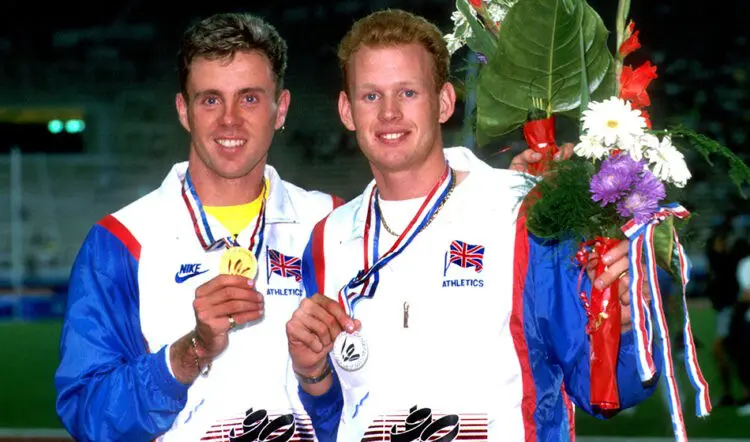Scottish 800m runner looks back on his European victory in Split in 1990 in 1:44.76
The 1986 Commonwealth Games in Edinburgh were my first real major championship. Steve Cram kicked in the back straight and left me, and then I passed everybody else once I woke up. When it came to the Europeans later that summer, I didn’t really think about anything else other than: “Crammy is going to try and take me in the back straight again”. So I thought: “When Crammy kicks, kick!”
Seb Coe was supposed to be coming back from glandular fever so I thought: “If I can keep Crammy, who probably looked to be the favourite, at bay then I've got a very good chance.” I was tactically superb but Coe beat me. I couldn't have run any differently. I couldn't have given anything differently. He just nipped me on the line.
At that point, I was still under the radar. Nobody expected me to be around again. In the commentary at the Europeans, with 200m to go, the commentator’s going: “Cram is ready to go and, oh, McKean still there.” That type of thing.
But, coming in four years later, it was slightly different. In 1989, I’d run 1:43.88 and no-one had done better in that year. No European had beaten me for three years by that point so I knew I was in very good shape for the Europeans. It was just about me getting my head around that I was favourite and how to eliminate problems.
I got through the heats and the semis, and the [British team] head coach Frank Dick came up to me at the training track. He said he knew I was nervous because I was expecting to run well, and I was half a second faster than anyone in Europe at the time. He asked me: “If I'm Tom McKean and you're Frank Dick, how would you tell me to run the race?”
And he just switched my mind round. Jokingly, I said what I would tell him was to: “Front run the first lap in 51 seconds, nice and comfortable. It’s all within your speed range, watch on the back straight, and then kick with 160-170m to go and nobody will touch you.”

Frank said: “Well, what's your problem?” And then he walked away. After that, I was all right. I did 51 bang on for the split. I expected them to attack me on the back straight, but I went, so the plan executed really well.
Unlike the Kenyans, who did run as teams, we British didn’t talk about the race. It was just a case of let's all go for ourselves. When I went off hard, so did David Sharpe, and he tried to get in front of me and slow it down. I knew he wanted that, so I just flew past him.
If I hadn't won, if I'd maybe run a different way and hadn't got to where I wanted to get to, then it would have been hard to reset with another silver because I’d trained all year, knowing I was obviously one of the best ones there, and gold was mine to lose.
I executed my plan and if you do that and get beat, then you can't complain. But I did everything exactly tactically right for that race to give me the best chance of winning. I was flying. They were all fighting, trying to get past each other, and I was just pulling away from them.

Linford Christie won the 100m at those championships. John Regis got the 200m and Roger Black the 400m. You had Colin Jackson and Kriss Akabusi’s golds in the hurdles and of course Yvonne Murray in the 3000m.
We all rooted for each other. We all were friends. Everybody had run well in Europe that year, and it’s a virus running through the team when things go well. People think: “Well, they're doing it, so I can do this.” And that gives that extra motivation, because they've raised their game, and you're trying to do the same as well.
We just had a good time. But then, the day after, we're back ready to race quite quickly. You enjoy the fruits of your labour. It's funny, nobody on the team was injured. Everybody was on a high. If it's a bad performance, sometimes you find that the physio room’s full because people are down, and there's no performing well. Everybody there was buzzing, including the coaches.
My medal is totally abused now. I've visited over 200 primary schools with all of them for talks with kids so they’re all manhandled and not gleaming at all. But I don't mind. I take things to schools like my Olympic number and kids love that, but they need to be hands on. They're appreciated more than if they were sitting in a drawer.
As told to Mark Woods
